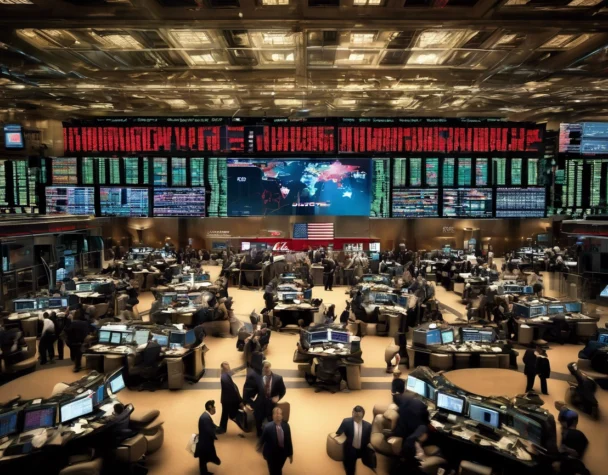
Global Markets React to U.S. Trade Policy Shifts and Corporate Earnings in April 2025
Wed, April 30, 2025U.S. Markets Boosted by Earnings Amid Ongoing Tariff Turbulence
Global financial markets entered the final trading days of April 2025 on a volatile note, largely shaped by evolving U.S. trade policies and mixed corporate earnings. The Dow Jones Industrial Average extended its longest winning streak of the year, up 0.8% on Tuesday, driven by investor optimism following President Trump’s latest tariff relief measures and anticipation of strong Big Tech earnings. The S&P 500 and Nasdaq also posted modest gains.
While positive earnings reports from major firms like Coca-Cola, Honeywell, and Sherwin-Williams provided a lift, companies such as General Motors and UPS struck a cautious tone. Both cited macroeconomic uncertainty and supply chain disruptions as concerns, underscoring the unpredictable impact of the newly implemented tariffs, which include duties of up to 145% on Chinese imports.
Beyond corporate reports, broader economic sentiment is showing strain. The Conference Board reported that U.S. consumer confidence has fallen to its lowest level in years, with households expressing pessimism about job availability and income growth. This adds pressure on markets already uneasy about the geopolitical direction of U.S. trade.
For more details on U.S. market movements and earnings, visit AP News or Yahoo Finance.
Global Economies Adjust as Trade Tensions Ripple Across Continents
International markets remained reactive to U.S. policies, though regional differences emerged. In Europe, stocks posted minor gains on Wednesday as the Eurozone reported 0.4% GDP growth for Q1 2025—an improvement over the previous quarter, but one still overshadowed by export challenges stemming from rising global protectionism.
In Asia, Japan’s Nikkei rose 0.6%, lifted by positive industrial production data. However, Chinese markets showed weakness due to contracting export orders, a direct effect of U.S. tariffs on Chinese goods. China’s manufacturing PMI dropped to 49.0, reflecting a slowdown in industrial activity.
Meanwhile, geopolitical issues weighed heavily on emerging markets. Pakistan’s stock and bond markets recorded their worst monthly performance since 2023 amid mounting border tensions with India. This development threatens to further destabilise the South Asian investment outlook.
On the commodities front, oil prices saw their sharpest monthly decline in over three years. Brent crude dropped 15% while WTI fell 16%, driven by lower demand expectations and surplus concerns. Gold, typically a safe haven during economic uncertainty, also declined as the U.S. dollar regained strength following policy announcements.
Investors now turn their focus to upcoming U.S. GDP and inflation data, which could determine the Federal Reserve’s next move and shape broader market direction.
For real-time global financial analysis, see Reuters Markets.

